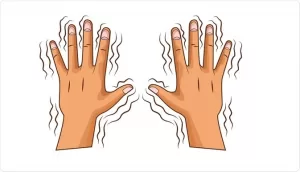What is Chorea
Chorea is a movement disorder that causes uncontrollable, irregular, and unpredictable muscle movement. Its symptoms can range from minor movements such as fidgeting to severe uncontrolled arm and leg movement. It deteriorates a person’s physical and mental abilities. Chorea itself is not life-threatening but it could be a sign of a neurological disease such as Huntington’s disease.
Causes
Chorea results from over-activity in the part of the brain that coordinates controllable movements, initiated by nerve impulses from the brain. The main causes of Chorea are genetic conditions such as Huntington’s disease, AIDS immune condition, infection-related conditions, certain medications, or metabolic disorders.
Symptoms
The most common signs of Chorea are involuntary muscle movements (frigidity or dance-like movements) speech problems, headaches, seizures, teeth grinding, shaky hands, lip or tongue biting, drooling, or spitting.
Types
Chorea is usually classified as being primary (the cause is not known, idiopathic, hereditary) or secondary (acquired). Primary disorders tend to develop gradually and are generally uniform whereas acquired Chorea are severe and can be irregular.
Treatment
To diagnose Chorea the Neurologist will review the medical and family history of the patient. The type of treatment depends on what is causing the movement disorders. It aims to treat the underlying condition which will help with Chorea symptoms. The doctor may prescribe medications and recommend brain stimulation surgery. This procedure does not cure Chorea but it can reduce its symptoms.
Treatment at home
Home care measures include installing non-slip surfaces on stairs and in the bathroom to prevent injury. Family and caregivers can help create an environment that may help a person with chorea.
When to see a neurologist?
If a person has irregular muscle movements that can’t be controlled then he or she must see a doctor. The risk of chorea is higher when you have an autoimmune disease or a family history of Huntington’s disease.


